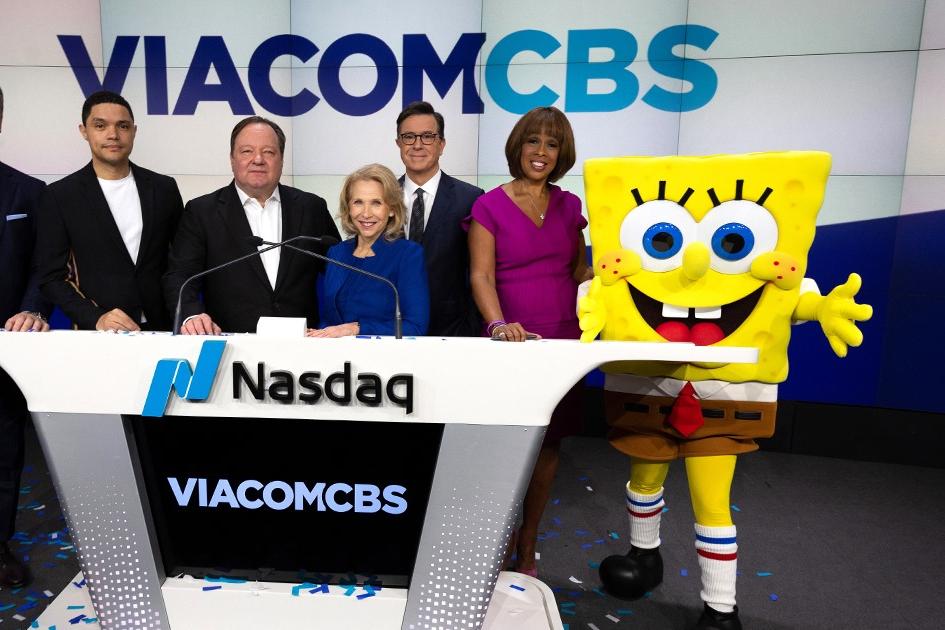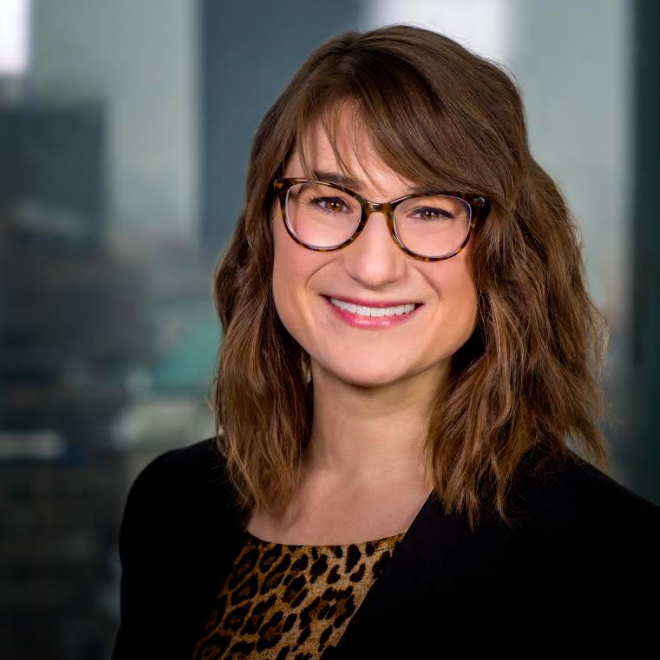
ViacomCBS is a global content company - one that's brands are renowned around the world and that’s programming has surrounded many of us since childhood. In our Times Square headquarters, MTV Moonman figurines, SpongeBob SquarePants plush toys, and CBS News reels adorn our halls and offices.
But beneath this legacy of beloved content and media history, we have been working on something that some might consider surprising: our global Environmental, Social and Governance (ESG) strategy. As a content company, we’ve been getting real about our unique responsibilities, given our global reach, and have been working to measure and manage our impacts—looking at how we show up in our audiences’ homes, on their cell phones, and in their communities through what we do every day - create content.
Part of our company’s ESG strategy focuses on what it means to measure our impact as content creators—something that’s less tangible, but extraordinarily important, especially in the midst of a global pandemic and racial reckoning in the U.S.
For ViacomCBS, this is grounded in our reach: we have the biggest broadcast footprint globally, with 31.2 billion hours of content consumed per year and more than 4.2 billion homes across the world getting our broadcast and cable programming. With our premium streaming services, we also have one of the largest inventories of digital video ads in the industry, shared with our 50 million full-episode viewers monthly.
And while we do have a physical footprint - one we proudly manage with a strong commitment to environmental responsibility - our impact is mainly reflected in how we help shape culture, social attitudes and societal outcomes, influencing how people understand the important issues we all face and delivering content that reflects the diversity of our audiences globally.
Of course, there are ESG issues that any company of our size and stature should be expected to report against: our governance structure, our diversity and inclusion policies for our workforce, and our greenhouse gas emissions, to name a few. But ViacomCBS works every day to produce the best content in the world, attracting the most innovative and creative directors, actors, animators, and more. We show up in viewers’ lives in personal ways, and that relationship demands a responsibility over the way we operate; produce and distribute content; and respect talent, employees, and partners.
In December of 2000, Queer as Folk debuted on our network Showtime as the first drama series to explore the lives of queer men in America. In February of 2017, Asia Kate Dillon appeared as Taylor Mason, the first gender non-binary character on TV in North America, on Billions. And in June 2020, one week after the killing of George Floyd, 10 of our brands, including MTV, BET, Comedy Central, and CBS Sports Network, went dark across their platforms for eight minutes and 46 seconds—showing a black screen with the words “I can’t breathe” to honor George Floyd and pay tribute to other victims of racial violence. Developing content that reflects the diversity of our audiences and their unique realities helps us build strong relationships with viewers across generational and demographic boundaries, and is central to how we make an impact. Our work continues.
To be clear, our ViacomCBS-specific environmental impacts, like the energy we use on the set of a movie or TV show, or the emissions that are generated on our Paramount Lot or CBS Studio Center in Los Angeles, are material and important for us to manage. So too are the processes by which we oversee governance topics like public policy engagement, IP and copyright, compliance, and privacy and cybersecurity. Even more so are key social issue areas like employee benefits and compensation, safety and security, and harassment and discrimination.
But at the core of our ESG strategy - our business strategy - is our commitment to showing up in ways that are meaningful to audiences around the world, and understanding how that footprint changes by brand, by country, by audience. It is our responsibility and even our passion as a company to walk the talk of our commitment to gender, sexual orientation, and ethnic and racial diversity. Enabling creators to do just that—to create freely and drive important conversations in living rooms and across social platforms around the world—is at the heart of our work.
We’ve started to outline this ESG commitment, and the particular issue areas where we both excel and need to improve, in our first company-wide ESG report, published this week. We’re at the beginning of this journey. Reporting as a tool for sustainability communication and engagement is a moment in time.
At ViacomCBS, we see no reason why we can’t be a net-positive company, environmentally and socially. We can redefine how companies measure their value and impact, and that work starts now.
Image credit: ViacomCBS/Facebook

Jessica Thurston leads ViacomCBS’ environmental, social, and governance strategy. She oversees the development and implementation of key ESG programs across the global company, including ESG reporting and engagement with rankers, raters, and investors.














